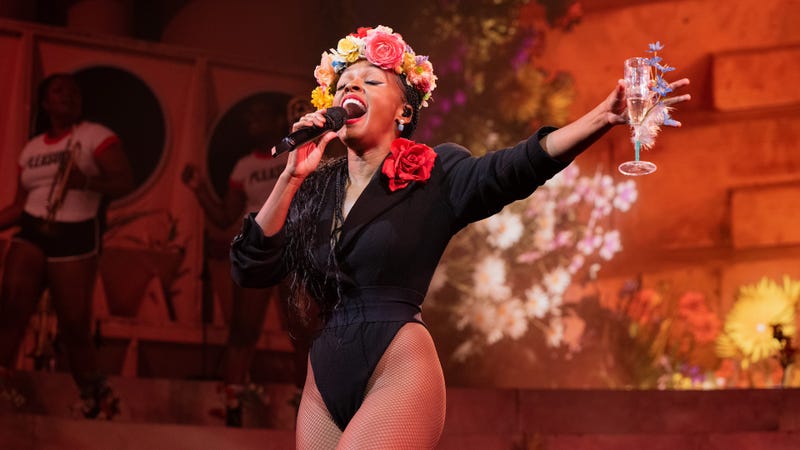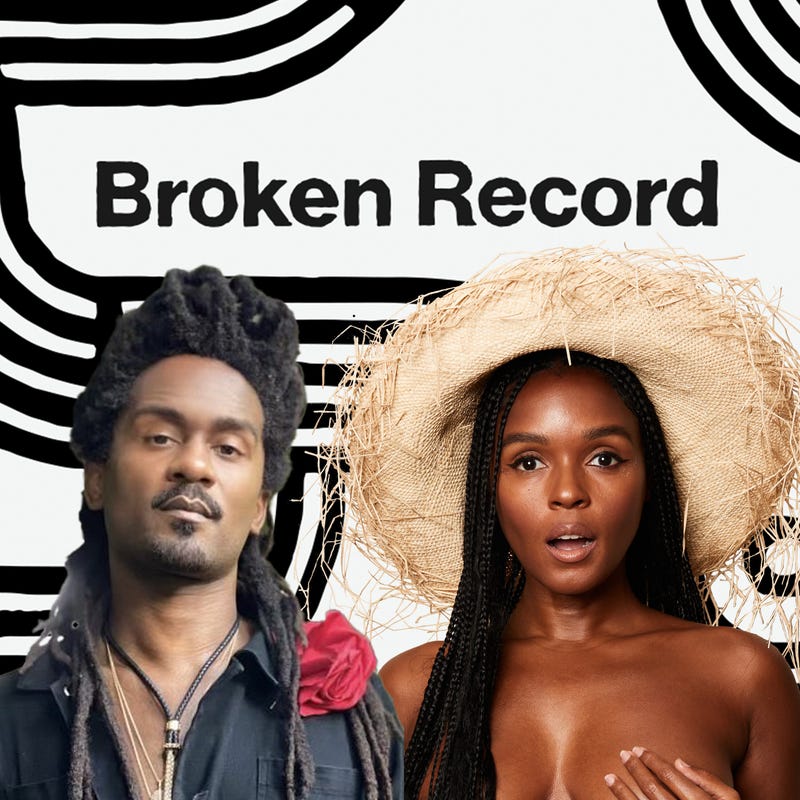
Singer, songwriter, and rapper Janelle Monáe sat down in the latest episode of the Broken Record podcast to discuss her latest album, and the personal growth she underwent when helping others.
LISTEN NOW: Janelle Monáe joins Broken Record with Rick Rubin, Malcolm Gladwell, Bruce Headlam and Justin Richmond
“To make an album called The Age of Pleasure in the middle of a pandemic is a subversive piece of art,” stated album co-writer Nate Wonder. As guests on the latest Broken Record podcast, Janelle Monáe and her longtime collaborator discussed how The Age of Pleasure became a defiant statement of joy for others, and eventually, healing for themselves.
“Music is truly healing,” Monáe acknowledged. “I need music, like, I need a song in my darkest hours. I need a song in my most celebratory stage.” This need, combined with the pains of the pandemic and raging social issues, inspired the artist to write music as a method of helping others find joy. Janelle Monáe has long been an advocate for Black, LGBTQ+ and women’s rights, but found that her “constant fighting” robbed her of the joys of everyday life. “It distracts you from living your life because you spend so much time fighting. And I definitely found myself and I know I'm not the only one,” Janelle Monáe said, going on to reference the Black Lives Matter movement, her work with Say Her Name and her protest song under the same title.
“I put out protest music. It was so heavy, man, and somebody has to do the work. But I think balance is important, and what I was realizing is I was not getting the balance that I needed. And so once we made a decision to not center white supremacy, to not center you know, all of the things that come to distract and destroy and stop us from just living our lives as humans... That's when I feel like the songwriting got focused.”
From then on, the songwriting also got remarkable. The Age of Pleasure has earned Monáe two significant GRAMMY nominations for Best Progressive R&B Album and Album Of The Year. And it’s easy to see why: the dancing Afrobeats, combined with her intimate approach and cascading voice, is a sonic movement of confidence and sensuality. She and Nate Wonder effortlessly merge throwbacks of classic jazz and disco into the world of R&B and soul. All the while, the listener is nearly washed away with the aimless joy her music brings.
While the album was originally intended to help others heal and find happiness, Monáe found that writing The Age of Pleasure helped her heal as well. She specifically references her song “Float” as the catalyst of her own introspection, saying it inspired her to “celebrate as a new person.”
“In discovering and peeling back the layers of the rejection and abandonment that I felt early on, getting into the root of it, my spirit started to get lighter because I knew,” she told the podcast host Justin Richmond. “And I feel so empowered now that I know what was going on with me… When you heal as a person, all of that seeps into your music and your art. My art is a reflection of who I am, and I'm so thankful for that, because all I wanted to do was give more people affirmations.”
Thus, the additional nod from the GRAMMYs is all the more meaningful. “I'm still just so humbled,” Monáe said of the nominations. “I watched a lot of my heroes get it and be on that stage, and like it's really a dream to be able to, not just shine light on the work that I do, but… everybody else who you know was a part of the album. They get recognized too. So that's the beautiful thing about being in that category.”
Head over to the free Audacy app to listen to the full and inspiring Broken Record Podcast episode. And of course, we’ll be keeping you updated on this year’s GRAMMY Awards, which will take place on February 4, 2024.
